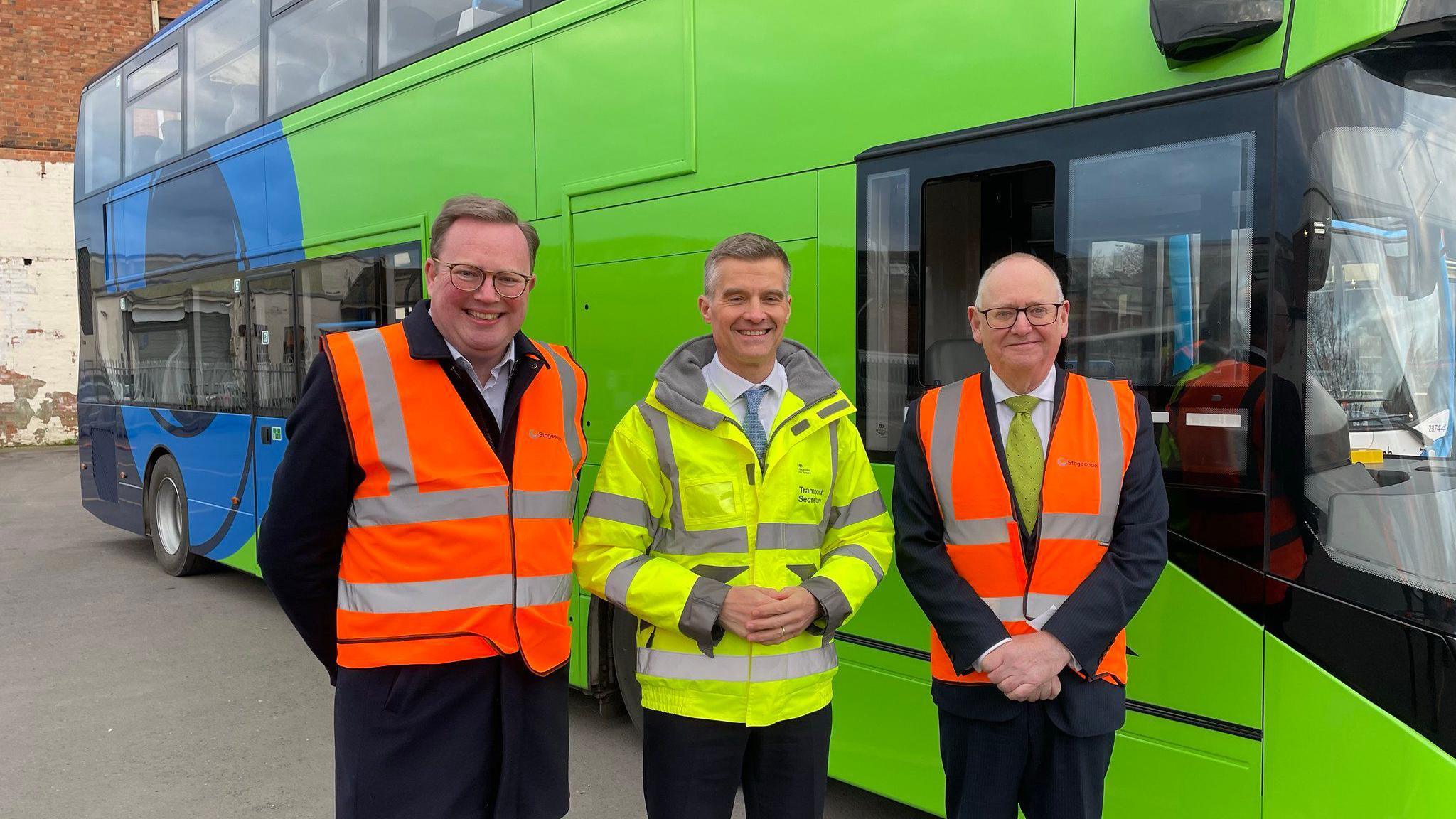Dozens of electric buses and new routes planned

The council's plans include 58 new electric buses and 50 new bus shelters
- Published
Dozens of new electric buses will be introduced in Gloucestershire along with an expanded bus network, the council has said.
It has been given £2.2m in government funding and has set out its strategy for bus transport across the county.
Other improvements include 50 new bus shelters and later running services in the evenings and at weekends.
The roads minister, MP Guy Opperman, said it was "great to see" the council "delivering cheaper and simpler fares, so that local residents can get around by bus more easily and with greater peace of mind”.
The plans are part of Gloucestershire County Council's bus service strategy, which the Department for Transport requested by mid-June as a condition of receiving the funding.
The new proposals were designed to increase bus usage across the country and were focused on making bus services faster and more reliable, fares more attractive and the network more comprehensive, a spokesman said.
As well as adding new routes and extending timetables, the council has said it will provide more electronic display boards and implement a "passenger charter".
There is also an emphasis on meeting carbon emission targets. Once the 58 new electric buses hit Gloucestershire's roads, more than 20 per cent of the county's fleet will be electric.
The buses are set to be funded with almost £6m in separate funding granted to the council by the Department for Transport.
Councillor Philip Robinson, (Cons) cabinet member with responsibility for buses, said: “We want buses to be at the heart of an attractive, affordable and integrated transport system and our Bus Service Improvement Plan 2024 outlines this vision."
He added: "We are committed to making bus services more reliable and appealing, as buses are a sustainable way to travel that will help us meet our carbon emission targets.”
Follow BBC Gloucestershire on Facebook, external, X, external and Instagram, external. Send your story ideas to us on email or via WhatsApp on 0800 313 4630.